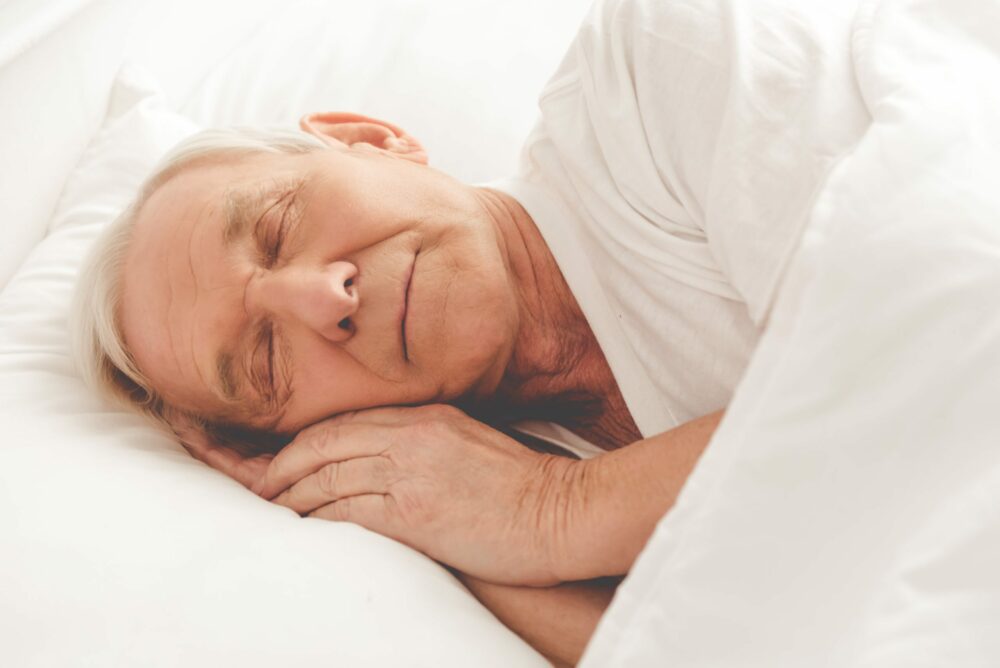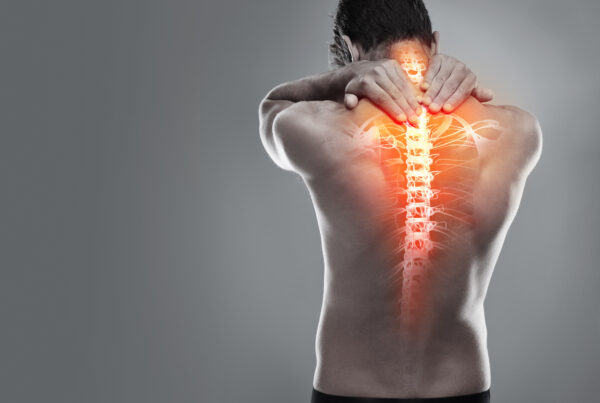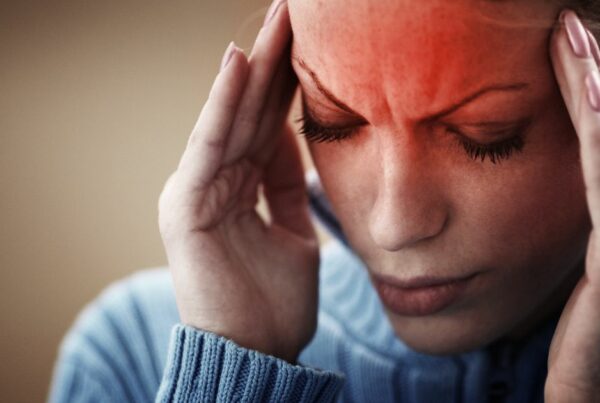Do you often find yourself struggling to fall asleep and lying in bed, unable to escape the ticking clock on the wall? Welcome to the world of insomnia, a condition that affects millions of people worldwide, making it difficult for them to fall asleep, stay asleep, or get a good night’s rest. Insomnia isn’t just a minor annoyance; it’s a complex issue that can have a significant impact on your quality of life and overall well-being. In this blog, we’ll dive into the world of sleep troubles, unravel the mystery of insomnia, explain what it is, its causes and symptoms, and explore the use of acupuncture as a treatment for this condition.
Understanding Insomnia
Insomnia is when you have ongoing trouble falling asleep, staying asleep, or getting the restful sleep you need, even when you have enough time to sleep. It can be short-term, temporary, or long-lasting. It’s more than just one sleepless night; it’s a persistent pattern that affects how you feel during the day, your mood, and your health. People with chronic insomnia deal with these issues for three months or more, and it can be a serious problem for them.
Who Does It Affect?
Insomnia can happen to anyone, no matter how old they are or where they come from. But certain groups are more likely to experience it:
- Adults: People 18 years and older.
- Elderly: Older adults may experience changes in their sleep patterns that make them more likely to have insomnia.
- Women: Women, especially during significant life changes like pregnancy or menopause.
- People with Mental Health Issues: Conditions like anxiety, depression, PTSD, and bipolar disorder can be related to insomnia.
- Those with Chronic Health Problems: Chronic pain, asthma, heartburn, arthritis, and other medical issues can disrupt sleep and lead to insomnia.
- Shift Workers: People who work irregular hours, especially at night, can have trouble keeping a regular sleep schedule, leading to insomnia.
- Substance Abuse: Misusing substances like alcohol, drugs, or certain medications can mess up your sleep patterns, causing insomnia.
- Children and Teens: Even kids and teenagers can experience insomnia, often because of stress, anxiety, or inconsistent sleep routines.
- Frequent Travelers: Frequent changes in time zones, like when dealing with jet lag, can lead to temporary insomnia.
It’s important to know that anyone, regardless of their age or situation, can have trouble with insomnia at some point.

Possible Causes of Insomnia
The causes of insomnia are as diverse as the people it affects. They can range from stress and anxiety to medical conditions, lifestyle choices, or even the environment. Here are some common things that can trigger it:
- Stress and Anxiety: A mind filled with worry and stress can make it hard to quiet the thoughts and ease into a peaceful slumber.
- Poor Sleep Habits: Irregular sleep schedules, too much screen time, or not having a relaxing pre-sleep routine can all contribute to insomnia.
- Uncomfortable Sleep Setting: Having a bad mattress, too much noise, or the wrong lighting in your bedroom can mess with your sleep.
- Medical Conditions: Chronic pain, asthma, allergies, stomach problems, and hormonal and neurological disorders can disrupt your sleep patterns.
- Mental Health Problems: Conditions like depression, bipolar disorder, and PTSD can interfere with a good night’s sleep.
- Medications and Substance Abuse: Certain medications, like antidepressants, asthma drugs, and cold medicines, can mess with your sleep. Nicotine, alcohol, caffeine, and other substances can disrupt your sleep cycle.
- Changing Sleep Schedule: Going to bed and getting up at different times regularly can confuse your body’s internal clock.
- Shift Work and Jet Lag: Working irregular hours or traveling across multiple time zones can mess up your natural sleep-wake cycle.
Knowing these triggers is important for coming up with ways to treat insomnia effectively.
Possible Symptoms of Insomnia
Insomnia can show up in different ways. Some common symptoms include:
- Trouble Falling Asleep: It’s hard to start sleeping, even when you’re tired.
- Waking Up Too Early: You wake up earlier than you want and can’t get back to sleep.
- Broken Sleep: You wake up many times during the night, making it hard to get a full night’s sleep.
- Racing Thoughts: Your mind is racing with thoughts, making it tough to relax and fall asleep.
- Feeling Restless: You can’t get comfortable or settle down, so you toss and turn.
- Daytime Sleepiness: You feel very sleepy and tired during the day, which can make it hard to do things.
- Irritability and Mood Swings: You’re more easily upset or moody because you didn’t get enough sleep.
- Memory and Concentration Issues: It’s tough to remember things, focus, or concentrate on tasks.
- Physical Symptoms: You might get headaches, feel tense, or just feel physically uncomfortable because of poor sleep.
- Poor Work or School Performance: Your work or school performance might suffer, and you make more mistakes because you’re not sleeping enough.
- Anxiety About Sleep: You might get anxious or fearful about going to bed because you’re worried you won’t sleep well.
- Relying on Sleep Aids: You might depend on sleep medications or other substances to help you fall asleep, which can lead to more sleep problems.
Potential Effects of Insomnia on Daily Life
Insomnia affects more than just your sleep; it can have a ripple effect on various parts of your life.
- Daytime Fatigue: Not getting enough sleep leaves you tired, which can affect how well you work or concentrate during the day.
- Health Problems: Chronic insomnia can contribute to serious health issues like obesity, diabetes, heart problems, and a weakened immune system.
- Mental Health: Insomnia can make existing mental health problems worse and even lead to new ones, like depression and anxiety disorders.
- Strained Relationships: Sleep troubles can lead to issues in your relationships because you’re more irritable, have mood swings, and have less patience.
Benefits of Acupuncture for Insomnia
Acupuncture can help with insomnia by offering several potential benefits:
- Stress Relief: Acupuncture can trigger the release of feel-good hormones and reduce stress hormones, helping you relax and reducing stress and anxiety, common triggers of insomnia.
- Regulating Sleep Patterns: Acupuncture may influence the central nervous system, helping you get a more consistent and restorative night’s sleep.
- Pain Relief: If you’re dealing with insomnia due to chronic pain, acupuncture can help ease your discomfort, giving you better sleep.
- Calming the Mind: Acupuncture can help calm a racing mind, promoting a state of tranquility that’s good for falling asleep.
- Improving Hormone Balance: Acupuncture can affect your hormone levels, including those linked to sleep (like melatonin), helping you sleep better.
- Boosting Circulation: Acupuncture enhances blood flow, providing your body with more oxygen and nutrients, which helps improve your sleep.
- Addressing Digestive Problems: If digestive issues are causing your insomnia, like acid reflux or indigestion, acupuncture can help.
- Relaxing the Nervous System: Acupuncture can trigger your body’s relaxation response, helping to calm your nervous system and prepare you for a restful night’s sleep.
- Improving Overall Well-Being: Acupuncture sessions promote a general sense of well-being, making it easier to manage stress and sleep better.
- Enhancing Sleep Quality: Regular acupuncture sessions can help you fall asleep more quickly, stay asleep longer, and wake up feeling refreshed, ultimately improving how well you sleep.

Healthy Lifestyle Tips to Improve Sleep
In addition to acupuncture, making healthy lifestyle changes can help regulate your sleep patterns and improve your overall sleep quality. Here are some tips:
- Stick to a Regular Sleep Schedule: Set a consistent bedtime and wake-up time, even on weekends, to help your body’s internal clock.
- Create a Relaxing Bedtime Routine: Do calming activities before bed, like reading, gentle stretching, or meditation, to signal that it’s time to wind down.
- Optimize Your Sleep Environment: Make your bedroom comfortable, dark, and quiet, with a comfortable mattress and pillows.
- Limit Stimulants and Screen Time: Avoid caffeine, alcohol, and electronic devices at least an hour before bed.
- Exercise Regularly: Be active during the day, but don’t work out intensely close to bedtime.
- Eat a Healthy Diet: Have a balanced diet, drink water to stay hydrated, and limit sugar, caffeine, and processed foods to support better sleep.
- Manage Stress and Anxiety: Include relaxation techniques in your daily routine, like deep breathing, mindfulness, or yoga.
These lifestyle changes can complement the effects of acupuncture and create a well-rounded approach to treating insomnia and improving your sleep quality.
If your insomnia continues, it’s important to consult a healthcare professional to rule out any underlying medical conditions.
Insomnia is a common and complex issue that can significantly affect your daily life and overall health. While it can have various causes and symptoms, acupuncture provides a comprehensive approach to treating insomnia by addressing its root causes, promoting overall well-being, and providing relief to those dealing with this condition. By combining acupuncture with healthy lifestyle habits, you can work toward achieving peaceful and restorative sleep.
If you’ve been struggling with insomnia, you know how challenging it can be. However, you can take control of your sleep, your health, and your dreams. Contact Acupuncture of West Florida if you’re interested in using acupuncture to treat your insomnia. Dr. Kim Windschauer, an experienced practitioner, uses traditional Chinese medicine combined with a modern approach to offer personalized treatment for insomnia and other health concerns. She has helped many patients improve their sleep and overall well-being.
If you’d like to meet with Dr. Kim to discuss your concerns, schedule a consultation with us. During the consultation, Dr. Kim will talk to you about your issues, evaluate your condition, and create a potential treatment plan tailored to your specific needs.
Don’t wait any longer. Make the decision to take charge of your sleep, your health, and your dreams. Call us at 727-490-6060 or visit our website acuofwestfl.com to schedule a consultation and start this exciting journey toward better sleep. Say goodbye to sleepless nights and hello to peaceful and rejuvenating sleep.






